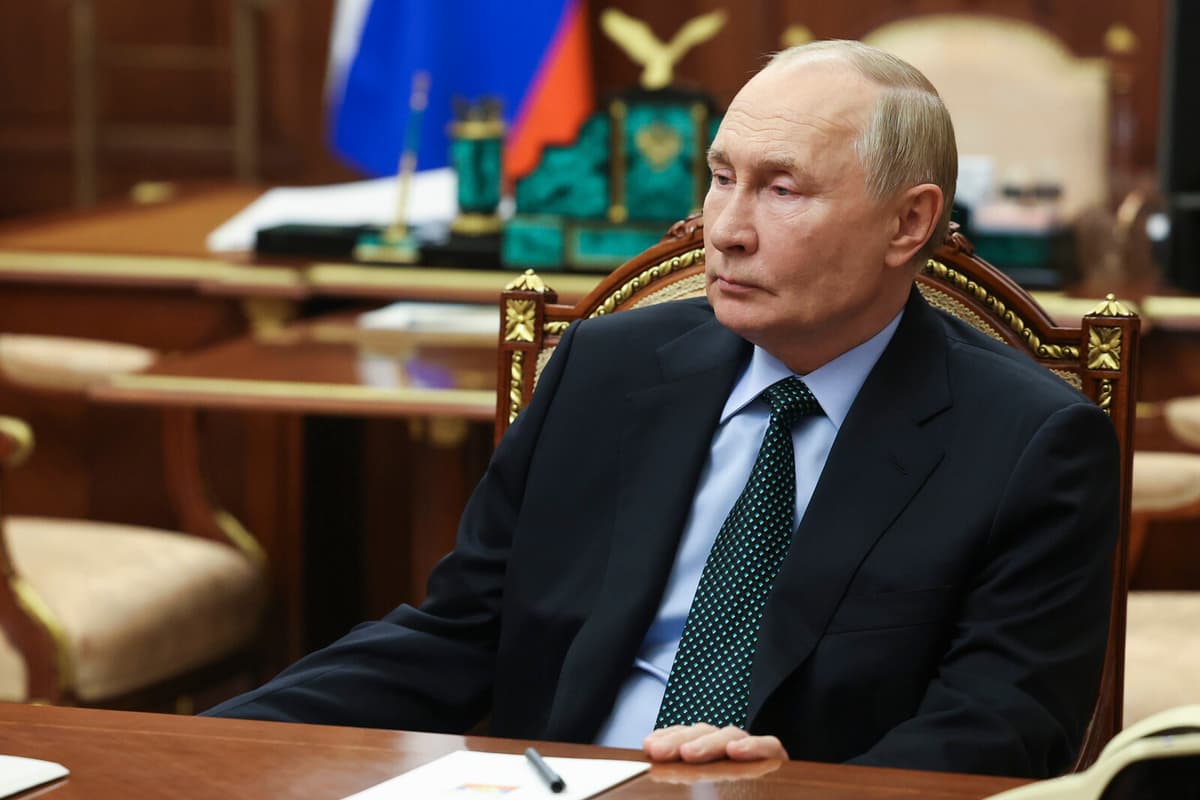The leadership in Russia has repeatedly brandished its nuclear arsenal as a warning to Western countries and Ukraine during the ongoing war.
In the country's new doctrine, broader frameworks are created for when weapons of mass destruction can be used. If a country without nuclear weapons attacks Russia with the support of a nuclear power, Russia will, for example, consider it an attack by both parties.
This is an attempt to increase the credibility of Russia's nuclear threats, which aim to create fear in the West and limit support for Ukraine, says Kristina Melin, an analyst focusing on Russia and nuclear weapons at the Total Defence Research Institute (FOI).
It can also be seen as a contribution to the discussion in the West about whether Ukraine should be allowed to use weapons supplied by Western countries to attack targets deeper in Russia.
"Necessary adaptation"
USA's President Joe Biden is said to have given Ukraine the green light to use advanced American weapons against targets deeper in Russia.
The decree with President Putin's signature was presented on Tuesday – just a few hours before reports emerged that Ukraine had for the first time fired American Atacms long-range missiles into Russia.
At a press conference, Vladimir Putin's spokesperson Dmitry Peskov announced that the new doctrine will come into effect at an appropriate time.
It was necessary to adapt our guidelines to the current situation, said Peskov.
Ultimately political
However, the doctrine can also have the opposite effect, according to Kristina Melin. She reads that Russia will use its nuclear arsenal's deterrent effect for more purposes. Among other things, it will be directed against the expansion of alliances in Russia's neighbourhood – and Belarus is being drawn under the Russian umbrella.
It appears that Russia will have to rely more heavily on its nuclear weapons. The deterrent is being directed at areas far from its main task. This in itself creates a credibility problem, says Melin.
The doctrine, as a public document, is part of Russia's deterrent policy, emphasizes the FOI analyst. A decision to actually use them ultimately lies with Vladimir Putin, and in his risk calculation.
Here are some of the biggest changes in Russia's nuclear doctrine, which has previously stated that the Russian deterrent capability is used solely for defensive purposes.
An attack on Russia with conventional weapons will also be able to justify a Russian counterattack with nuclear weapons, but it is not an explicit obligation.
If a state that is not a nuclear power attacks Russia with the support of a nuclear power, it will be considered an attack by both parties or the entire alliance they belong to.
Russia now regards allied Belarus as part of the Russian nuclear deterrent. Russia has reportedly placed Russian nuclear weapons there.
International disarmament agreements and other commitments have been struck from the document or toned down. Russia has left or withdrawn from several regulating arms control agreements.
Russia reserves the right to use nuclear weapons if an allied country is attacked with nuclear weapons.






